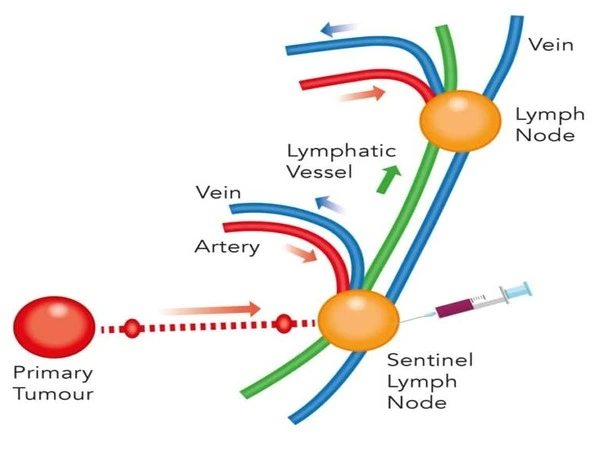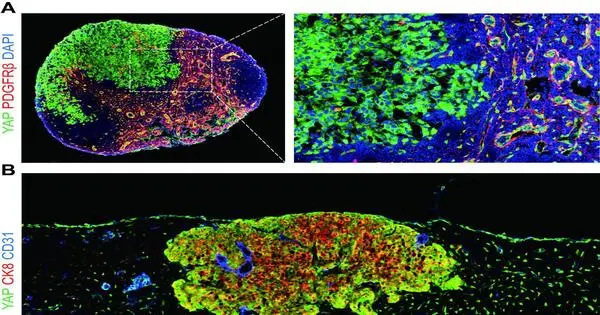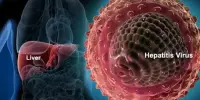Lymph node metastasis is frequent in many malignancies and often implies disease spread. While traditional therapies including as surgery, chemotherapy, and radiation therapy are widely used, new techniques are constantly being developed to increase efficacy and reduce adverse effects.
Tohoku University researchers have identified a new strategy of treating lymph node metastases. Anticancer medications are delivered directly into sentinel lymph nodes (LNs) using ultrasound guidance (Lymphatic Drug Delivery System or LDDS) to induce antitumor effects locally while limiting distant metastasis. This method not only improves anticancer activity but also lowers the unpleasant side effects frequently associated with systemic chemotherapy.
The journal Biomedicine & Pharmacotherapy released information about the researchers’ success. The research team was directed by Professor Tetsuya Kodama of the Graduate School of Engineering at Tohoku University.
LDDS is a groundbreaking method to improve treatment while decreasing side effects. This approach provides a safer alternative to LN removal and promises to improve cancer survival rates.
Ariunbuyan Sukhbaatar
Sentinel lymph nodes have been identified as the site of metastasis in recent studies. They are the first lymph nodes to get discharge from a primary tumor and signal that metastasis has occurred or may develop. As a result, there is a need for better LN metastasis control without invasive surgical or radiation procedures.
However, the occurrence of side effects varies from person to person and from treatment to therapy. In fact, two people receiving the same treatment may have dramatically different experiences. Most people have unpleasant side effects that eventually subside over time.
In a prior investigation, some of the current researchers utilized LDDS incorporating heightened osmotic pressure and viscosity of docetaxel, yielding promising outcomes in the treatment of early-stage LN metastasis during preclinical research. Based on this, they hypothesized that administering docetaxel – a widely used clinical anticancer drug – through LDDS at an osmotic pressure and viscosity of 1,960 kPa and 12 mPa∙s would result in superior antitumor effects, prolonged survival, and minimal adverse reactions.

To test this hypothesis, Kodama and his team administered the treatment to a preclinical model of a metastatic lymph node mouse model. Their findings confirmed superior therapeutic outcomes, increased complete response, improved survival, and reduced adverse complications.
The double-shot administration enhanced T helper cell differentiation in the spleen and sentinel LNs, emphasizing its potential in cancer management. Histopathological assessments confirmed the efficacy, highlighting the potential of LDDS in cancer management.
The research team emphasizes the safer nature of the new method. “LDDS is a groundbreaking method to improve treatment while decreasing side effects,” says Ariunbuyan Sukhbaatar, assistant professor at the Graduate School of Dentistry and lead author of the paper. “This approach provides a safer alternative to LN removal and promises to improve cancer survival rates.”
At the same time, Kodama notes, “LDDS offers a novel, safe method for delivering anticancer drugs to susceptible LNs, presenting a promising approach for improving cancer treatment effectiveness while minimizing side effects.”
Looking ahead, the study team intends to conduct additional studies on the LDDS in order to improve therapy responses against lymph node metastases. Clinical trials will be done in partnership with medical specialists to validate the efficacy of these techniques in cancer patients.
















